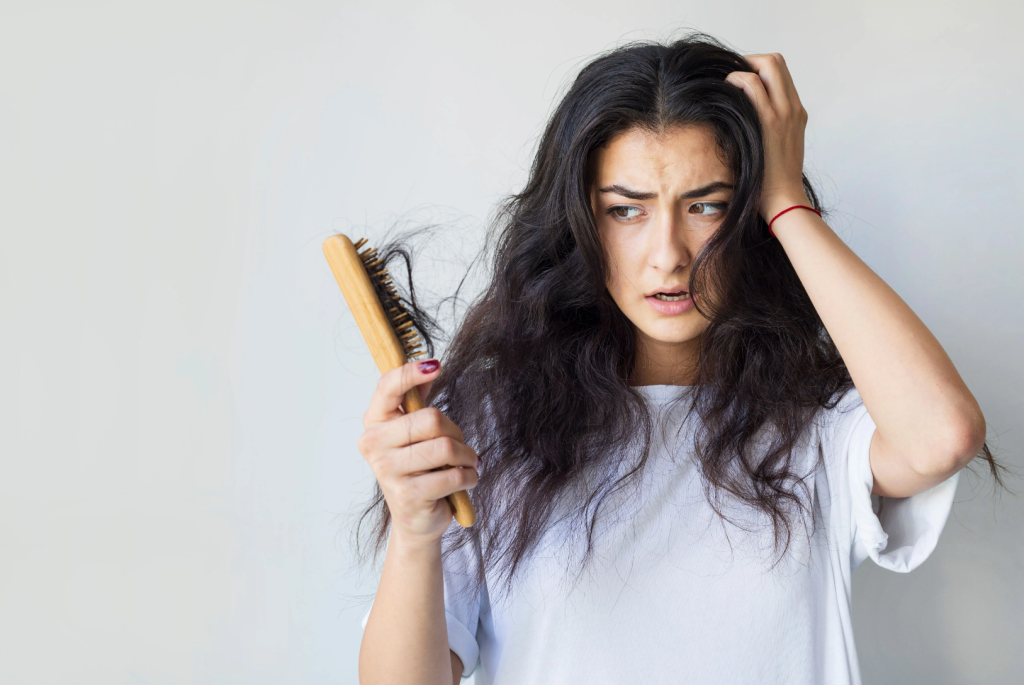
Preventing hair loss involves a combination of lifestyle habits, proper hair care, and, if needed, medical interventions. Here’s some advice:
1. Healthy Diet:
- Nutrient-rich Foods: Ensure your diet includes proteins, vitamins (especially B vitamins), minerals like iron and zinc, and omega-3 fatty acids. These nutrients support hair growth.
- Hydration: Drink plenty of water to keep your hair and scalp hydrated.
2. Gentle Hair Care:
- Avoid Harsh Treatments: Limit the use of heat styling tools, chemical treatments (like perms, relaxers, and dyes), and tight hairstyles that can pull on the hair (like ponytails or braids).
- Use Mild Shampoos: Choose shampoos and conditioners that are sulfate-free and designed for your hair type.
- Scalp Care: Keep your scalp clean and free from buildup. Regular scalp massages can stimulate blood flow and promote hair growth.
3. Manage Stress:
- Relaxation Techniques: Practice stress management techniques such as meditation, yoga, or deep breathing exercises. High stress levels can contribute to hair loss.
- Adequate Sleep: Ensure you get enough sleep to allow your body to repair and rejuvenate.
4. Medical Interventions:
- Consult a Doctor: If you notice significant hair loss, consult a dermatologist or healthcare provider to rule out underlying conditions like thyroid issues or hormonal imbalances.
- Medications and Treatments: Treatments like minoxidil (Rogaine) or prescription medications can help, but should be used under medical supervision.
5. Protect from Environmental Damage:
- Sun Protection: Wear hats or use hair products with UV protection when spending time in the sun.
- Avoid Pollution: Protect your hair from pollutants by covering it in areas with high levels of pollution or after exposure, using gentle cleansing products to remove residues.
6. Avoid Smoking and Excessive Alcohol:
- Quit Smoking: Smoking can reduce blood flow to the scalp and contribute to hair loss.
- Limit Alcohol: Excessive alcohol can affect hair health by depriving your body of essential nutrients.
7. Regular Check-ups:
- Monitor Your Health: Regular health check-ups can help detect any issues that may contribute to hair loss, such as iron deficiency or hormonal changes.
By maintaining a healthy lifestyle, being gentle with your hair, and addressing any health concerns early, you can reduce the risk of hair loss and maintain healthier hair.






